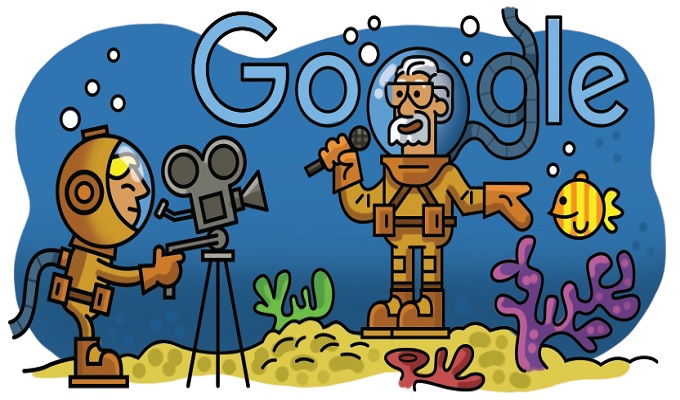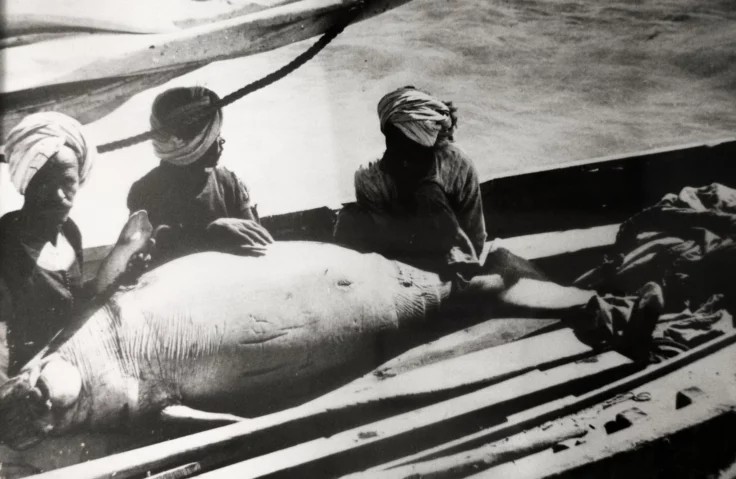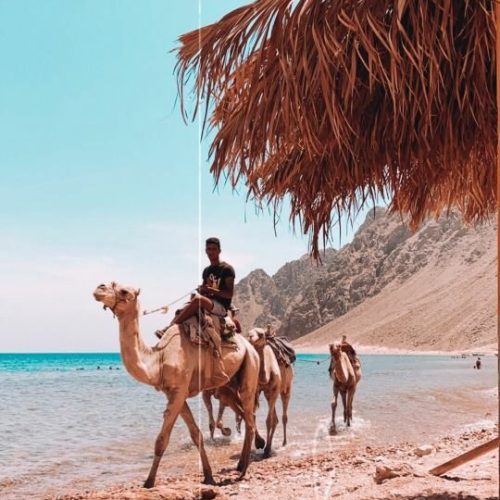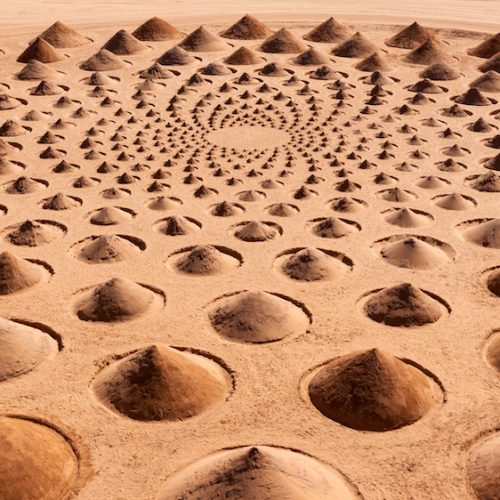Not long after honoring Haja El Hamdaouia, the Moroccan singer who influenced Shaabi music, today’s Google Doodle is paying homage to another notable Arab figure: Hamed Gohar. Born 115-years-ago on Nov. 15, the Egyptian marine biologist is one of the most influential scientists hailing from the MENA region. Below, a few of Gohar’s key accomplishments during his lifetime.
He democratized oceanography to a whole generation of Arabs
Through his famous weekly TV program which ran for 18-years, Sea World, Hamed Gohar vulgarized the science of oceanography to the Arab audience in subtle terms. His approach was predicated upon showing videos of marine creatures and explaining the different species, their habits, and their special features. With his calm voice, Gohar debunked common misunderstandings and explained the importance of the marine creatures to the ecosystem.
He was the first person to obtain his PhD in the Faculty of Science in Cairo
Gohar was a staunch believer in education and science, a belief that was reflected in his academic accomplishments. He initially enrolled in the Faculty of Medicine, but after graduating with honors from the preparatory year, he decided to switch to the Faculty of Science, where he went on to earn a Bachelor of Science with first honors before being hired as a teaching assistant in the faculty’s Department of Animal Sciences.
He went on to pursue a Master’s degree in oceanography at the University of Cambridge. Shortly after, Gohar relocated to Hurghada to work at the Marine Biology Station and continued his scientific studies on Red Sea marine life until he earned a doctorate in this field of study. According to Dr. Abdel Halim Montaser, Gohar was the first person in Egypt to do so.
Gohar made a significant contribution to issue the Arabic scientific dictionaries
By collaborating with the Arabic Language Academy to produce scientific dictionaries in Arabic, he contributed to the development of the Arabic scientific language. His eagerness to have scientific texts in Arabic can tell about his devotion for the growth of sciences in the region. He also made some outstanding contributions to Egyptian and Arab marine biology in his position as a UN secretary general’s advisor. In addition, Gohar helped set up the Geneva first International Conference on Law of the Sea.
He discovered that the dugong was not extinct
While researching xenia, or soft coral, along the Red Sea coast, he found out that the dugong, also known as the sea cow, still existed. In 1957, he published the first scientific study of dugongs in the Red Sea. Today, the endangered marine species is listed as vulnerable according to the IUCN Red List and the international trade of the animal was banned by the Convention on International Trade in Endangered Species of Wild Fauna and Flora.










